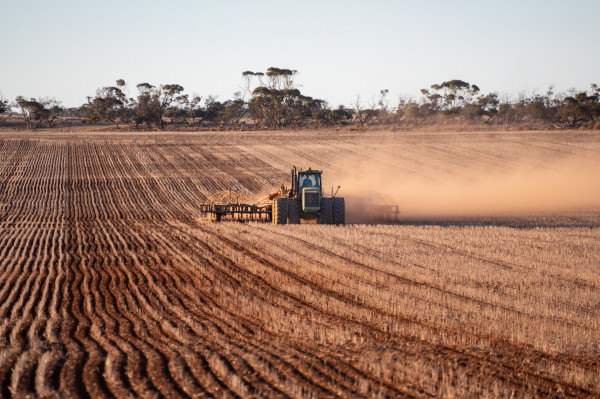THE Victorian Government has announced its drought support package has been extended to farmers across the state.
Revealed on Friday, the package was previously restricted to municipalities mainly in the south west of the state.
At the same time Premier Jacinta Allan announced the formation of a Drought Response Taskforce made up of political, farming and other related industry leaders.
“The new task force will bring together Victorians from different communities, different backgrounds and different political parties,” Ms Allan said.
“Most importantly, it’ll be focused on delivering real relief for farming communities.”
Ms Allan will chair the group and will be joined by Minister for Regional Development, Treasurer, and Northern Victoria Upper House MP Jaclyn Symes, Minister for Agriculture Ros Spence, Minister for Water Gayle Tierney, and Parliamentary Secretary for Regional Victoria Michaela Settle.
Nationals MP for Murray Plains and former Agriculture Minister and deputy Opposition Leader Peter Walsh is also on the task force.
“This is not about politics; this is about coming up with the best possible solutions for our besieged agricultural industries and I thank the Premier for taking my experience into account in asking me to help,” Mr Walsh said.
“I have spent the past 30 years working in this area as a member of Parliament, as an Agriculture and Water Minister and as president of the Victoria Farmers Federation; and before that ran my own farming enterprise, so I am confident I will have plenty of suggestions to benefit this vital taskforce.
“This is where you truly represent the people, when the politics are put aside and we come together to help everyday Victorians; and that’s what everyone on this task force will be doing.”
President of the Victorian Farmers Federation, Brett Hosking, is also part of the group and said the task force as well as the extension of the drought support package was a “step in the right direction”.
“Farmers are doing it tough and some are facing the worst drought conditions in living memory,” he said.
“This announcement offers a glimmer of hope and is recognition that the pressure we’ve applied is being heard.
“It’s a step in the right direction, but plenty more remains to be done.
“You can’t begin to understand the impact of this drought until you actually visit these areas in person.
“I thank Premier Jacinta Allan, Treasurer Jacyln Symes and Minister for Agriculture Ros Spence for coming out to see what we’re facing and this extra support.”
Drought Response Taskforce are CWA Victoria president Jenny Nola, National Centre for Farmers Health Dr Susan Brumby, Heath Templeton who’s president of the Hamilton and District Stock Agents Association, NAB executive for regional and agribusiness Khan Horne, and general manager of corporate and public affairs at the Bendigo Bank Robert Musgrove.
Local government interests will be primary represented by Rural Councils Victoria deputy chair Cr Kate Makin from Corangamite Shire and Regional Cities Victoria (RCV) chair and Shepparton mayor Cr Shane Sali.
“RCV is the trusted voice to government for the regions, their cities and the rural communities they support,” Cr Sali said.
“Our leadership group, led by the mayors and CEOs of the 10 largest cities in regional Victoria, has provided strategic advice to government, ministers and industry stakeholders for the last 25 years.
“When we are at the table, we are a direct report for our communities, our businesses and the industries that the state’s economy relies on.
“I have called an extraordinary meeting of RCV mayors for Monday to discuss the priorities we will take to next week’s inaugural task force meeting.
“We’re all facing this challenge together — no regional city is immune from the consequences of drought.”
As part of Friday’s announcements, all primary producer land holders will avoid the increase in the new fire services levy, know as the Emergency Services and Volunteers Fund.
“By capping the rate of the Emergency Services and Volunteer Fund for primary production properties, we’re ensuring farmers can remain fully focused on their drought response and recovery,” Ms Symes said.
Mr Hosking said delaying the increase in the levy, which has been controversial among some farmers and land holder offered an opportunity.
“Pausing the ESL increases for 12 months is the right call, but it doesn’t change the underlying problem: this levy is an unfair cost shift onto farmers,” he said.
“We’ll use this extra time to continue making the case that it needs to be scrapped altogether, not simply paused.”
A statement from the State Government said Friday’s announcements came after expert advice.
“While farmers were anxiously awaiting May rainfall, the latest weather data shows the anticipated autumn break has failed to eventuate, with the window for last minute rain to avoid a failed season closing completely,” the statement said.
“Advice from Agriculture Victoria indicates that rainfall in May realised the worst-case scenario, projected at the start of the month.
“Over the past two weeks, a majority of the state received just 20 per cent or less of the average typical rainfall expected in May.”
The State Government will add an extra $37.7 million in funding to the drought relief package.
Liberal Northern Victoria upper house MP Wendy Lovell described the measures as “too little, too late”.
“The updated drought support package announced today by the Victorian Government is too little, too late,” she said.
“The announcement follows a week of intense pressure on the Government in parliament, where the Liberal Party moved a motion calling for increased drought assistance that passed unanimously.
“Numerous members raised concerns about the level of drought assistance, and joined my call for the Victorian Government to extend the support package to all municipalities in the Northern Victoria Region.
“The package announced today will offer some assistance for water cartage, and will extend support to all farmers statewide, including in Northern Victoria.
“But the package will not provide any direct financial assistance for feed or fodder delivery, nor subsidise water supply for agricultural purposes.”
















